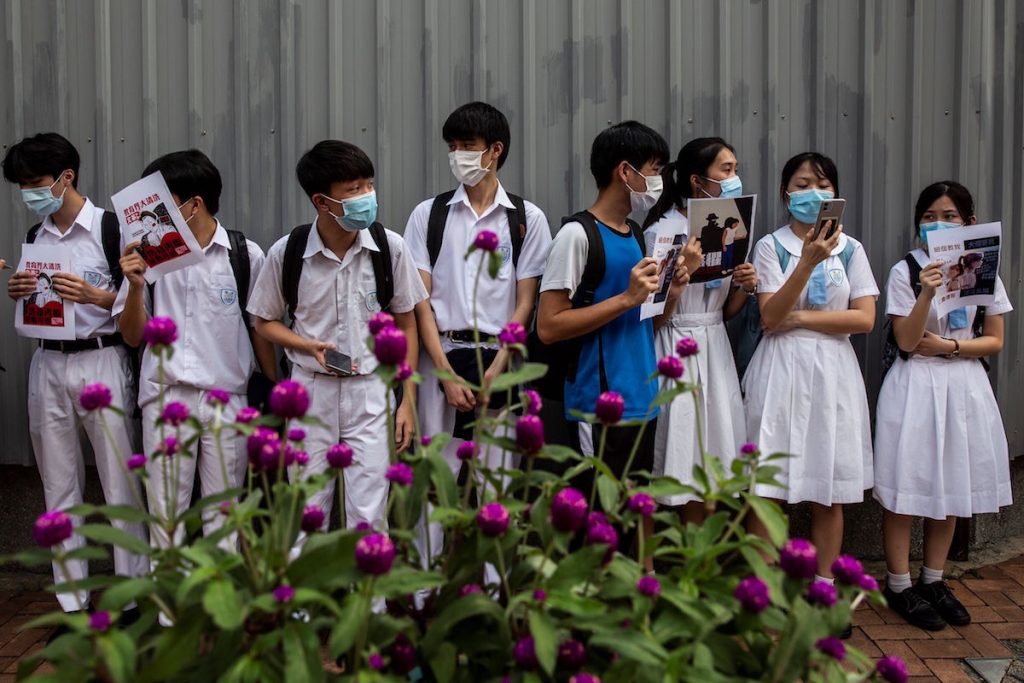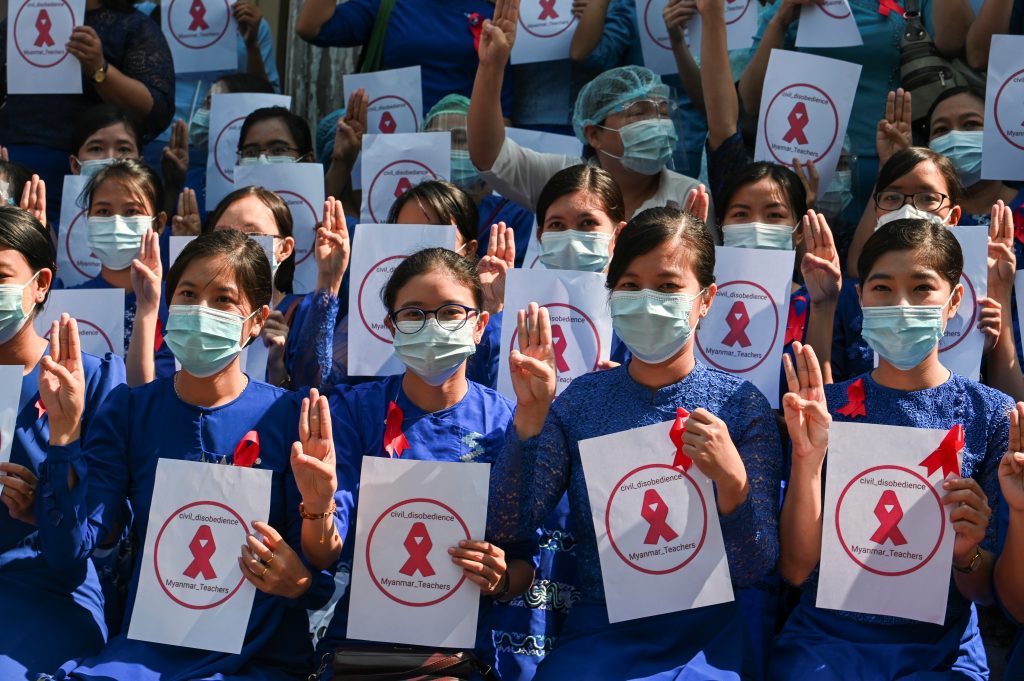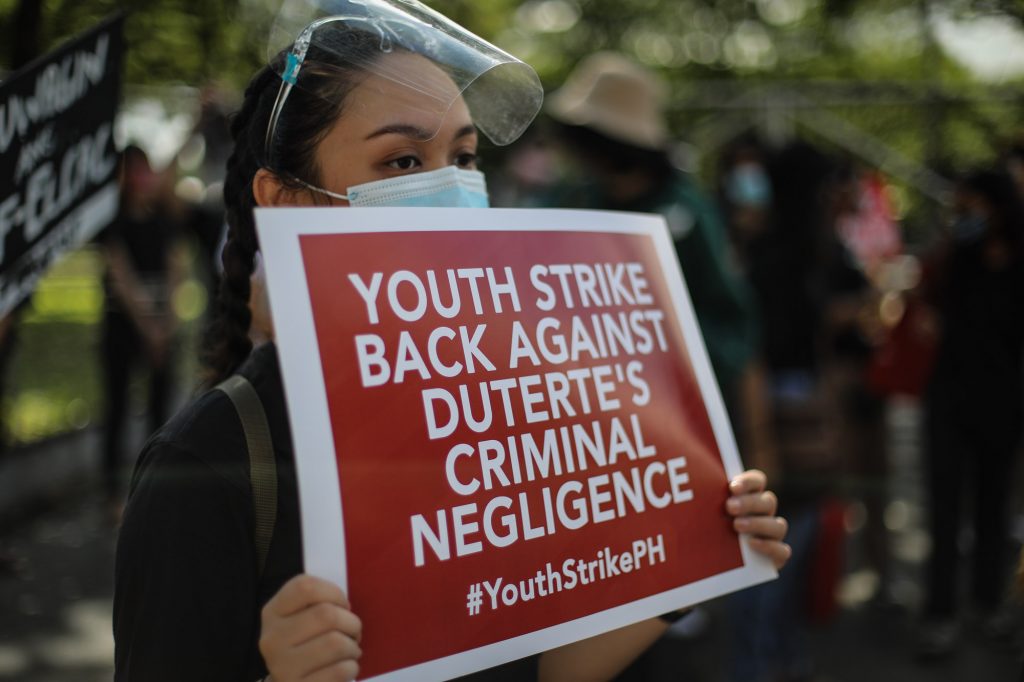In April 2020, at the height of the first wave of COVIOD-19 infections, the Delhi police force arrested a PhD student at Jamia Millia Islamia University (JMI), Meeran Haider, for allegedly “conspiring to incite violence”.
Ten other students faced jail time, including the university’s alumni association president, Shifa-Ur-Rehman, and Safoora Zargar, a JMI MPhil enrollee. Zargar was four-months pregnant at the time of her detention.
Shuriah Niazi, reporting for University World News, wrote: “Haider and Zargar are also members of the Jamia Coordination Committee, a group of current and former JMI students. All three were part of protests at the university in February against the contentious Citizenship Amendment Act or CAA passed in December 2019, which allows Indian citizenship for those from neighbouring countries only if they are not Muslim.”
The students faced charges ranging from rioting and sedition to conspiracy to commit murder.
“But many of those arrested in April,” the report further said, “have also been charged under the draconian Unlawful Activities Prevention Act or UAPA. The amended UAPA gives the government authority to jail people without charge and makes it nearly impossible for them to get bail.”
Nearly half a world away, the People’s Republic of China’s new National Security Law imposed on Hong Kong gave police almost unlimited power to seize pro-independence students in what has become China’s legislative overreach in the city.
December 2020 saw a wave of arrests targeting students from the Chinese University of Hong Kong (CUHK) mainly for chanting pro-independence slogans and expressing their sentiment through graffiti. How Steve Li of the Hong Kong National Security Department came up with the excuse that slogans and the waving of pro-democracy flags constituted “national security concerns” is anybody’s guess.
In response to the arrests, Amnesty International Hong Kong’s Programme Manager Lam Cho Ming said, “Chanting political slogans, singing songs and waving flags should never be crimes, but there is a grim predictability about these arrests that lays bare the deterioration of human rights in Hong Kong since the national security law was enacted.
“The people involved in this small protest were merely expressing their views peacefully, but this is now treated as a crime as the Hong Kong and central Chinese authorities seek to crush all forms of dissent. Today’s arrests are yet another example of the Hong Kong government’s attempts to silent opposing views on campus. Amid sweeping repression of freedom of expression in Hong Kong’s education institutions, students and teaching staff from primary schools, secondary schools and universities alike have become targets of political prosecutions under the pretext of ‘national security’.”

In September last year, amid denials of the Myanmar authorities of the arrests of students, the All Burma Federation of Students Unions (ABFSU) claimed that 14 students “had been arrested and charged with offences carrying up to two years in jail after handing out pamphlets criticising the government and the military,” according to a Reuters report.
As of this writing, Myanmar is in the throes of a widespread protest action denouncing the recent and largely unpopular military coup. The said coup ousted and detained Nobel laureate and Myanmar state counsellor Aung San Suu Kyi.
In my search for stories involving students, a more disturbing account emerged: the arrest of a Chinese student and his subsequent punishment of six months imprisonment in China “for tweets he posted while studying at Minnesota”.
This raised “renewed concerns about whether Chinese students studying in the U.S. enjoy the same freedom as their non-Chinese classmates and signaled a seeming escalation of pressures on Chinese students’ and scholars’ speech.”
According to Inside Higher Ed report in Jan. 31, 2020, “‘This case is extremely disturbing,’ said Kevin Carrico, a senior lecturer in Chinese studies at Monash University in Australia. ‘It demonstrates all too clearly that the [People’s Republic of China] government is not only monitoring students’ speech abroad, but also actively investigating and prosecuting students for exercising free speech. The Chinese state is basically telling citizens who live abroad, ‘We own you.’”

Apparently, this reported intrusion by China into academic institutions worldwide wasn’t the first. Long before Covid-19, the Scholars at Risk Network reported that “On October 15, 2019, Chinese authorities reportedly detained Wang Zhan, a postdoctoral researcher in meteorology at the Finnish Meteorological Institute (FMI), apparently based on alleged online expression.”
The Finnish Meteorological Institute is located in Helsinki, Finland, roughly 6,300 kms. away from China. Wang began working for the institute as a post-doctoral researcher on “terrestrial modeling, vegetation dynamics, and climate studies”.
The network’s Academic Freedom Monitoring Project further said that media sources Wang was targeted “for alleged online expression advocating for the independence of Manchuria”. If convicted, Wang could face up to 10 years’ imprisonment.
Senior lecturer at the Department of Philosophy in Tel Aviv University, Anat Matar, reported on a more recent case in Israel—the arrest of Palestinian students Samah Jaradat and Amir Hazboun.
“Jaradat was arrested in early September 2019, three days after finishing her studies at Birzeit University. She was interrogated and tortured for 22 days, sentenced to nine months in prison, and released in June 2020. Hazboun, a fourth-year engineering student, was arrested on Sept. 10, 2019. He, too, was tortured and barred from meeting with his lawyer for 22 days.”
Just recently, in Boğaziçi University in Istanbul, student protests erupted shortly after Pres. Recep Tayyip Erdoğan’s government in Turkey appointed an ally, businessman Melih Bulu, to sit as rector in the prestigious university.
“The decision to appoint Bulu,” The Guardian report said, “was denounced as undemocratic by university members, and widely interpreted as a government attempt to infiltrate one of the country’s last left-leaning institutions: Bulu is the first rector chosen from outside the university community since Turkey’s 1980 military coup.”
To include student crackdown in the Philippines on account of the Anti-Terrorism Law, to say little of the abrogation of the University of the Philippines-Department of National Defense agreement, is a labor in redundance.

The arrest in Cebu City of three students and four members of progressive groups, and those in Cabuyao, Laguna sometime June and July 2020, respectively, were but preludes to a wider and more vicious student crackdown should the Anti-Terrorism Law win over the opposition in court.
Duterte’s drug war campaign has claimed the life of Grade 11 student Kian delos Santos, 17, while waylaying 129 children either as targets or victims of crossfire in the course of Duterte’s four years in office.
This may come as a rude awakening for some people, more so parents, but education, the kind which works for the betterment of humankind, comes with the force of a storm.
Intelligence is dangerous for reasons that threaten the plans of those who wish to shackle our children—and their future—to power’s impulses and caprices. We cannot force them to go to school, day-in, day-out, only to learn the sort of subservience beasts of burden are accustomed to.
Students who take their knowledge seriously are expected to be defiant, disrespectful of what is wrong, to the extent of being audacious, even rude, in dealing with the faults and felonies of the powerful.
History is replete with examples of how student protests had inspired the courage which forced tyranny eventually to its knees: from the French Revolution to the Diliman Commune of the martial law years and today’s student protests against the Terror Law, to name a few.
Real education is the child of freedom. Everything learned behind the mentorship of barbed wires is mere slavery.
Joel Pablo Salud is an editor, journalist and the author of several books of fiction and political nonfiction. The views and opinions expressed in this article are those of the author and do not necessarily reflect the official editorial position of LiCAS.news.








